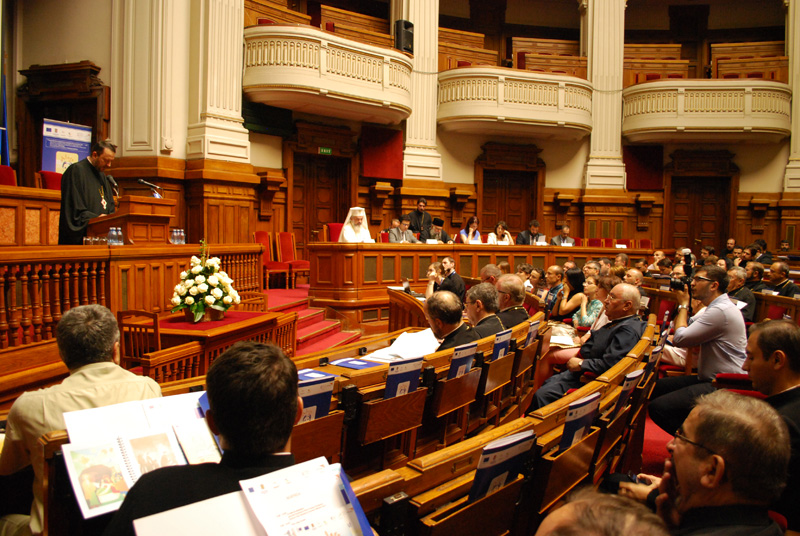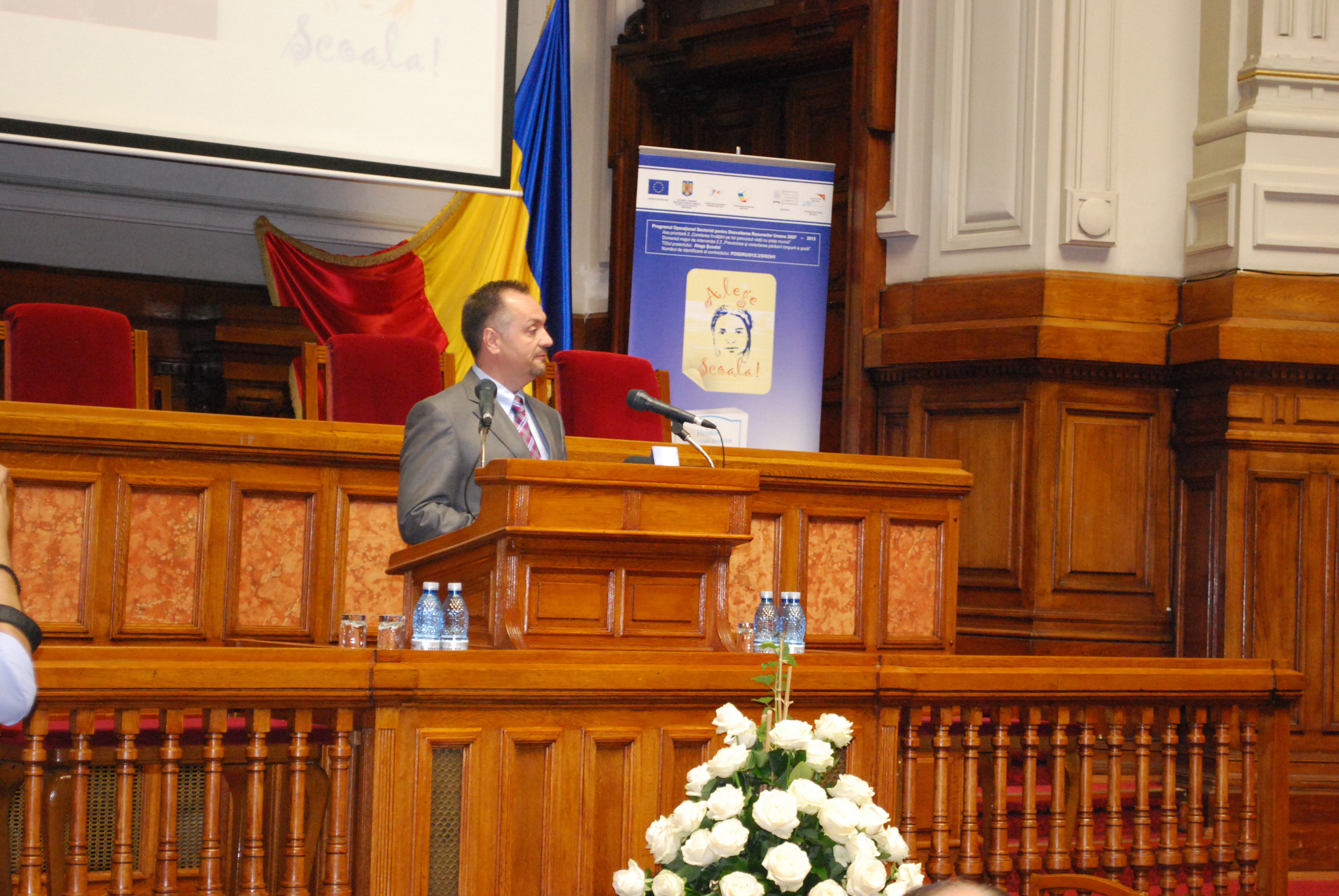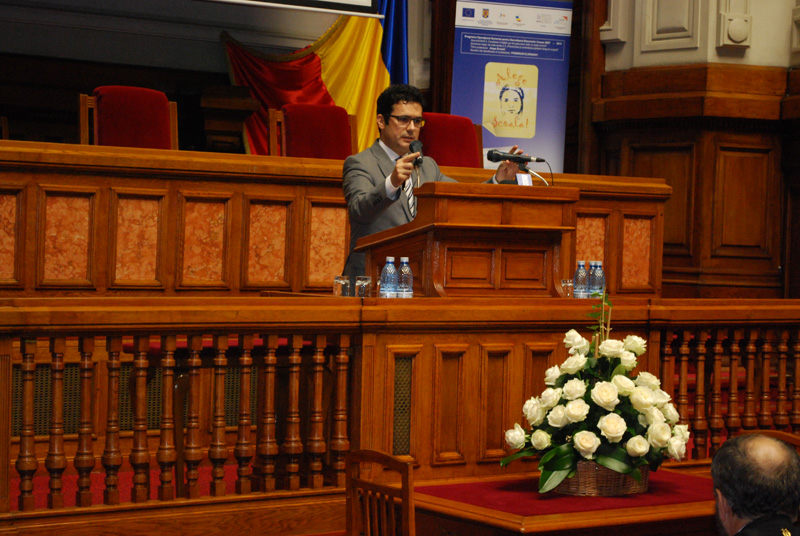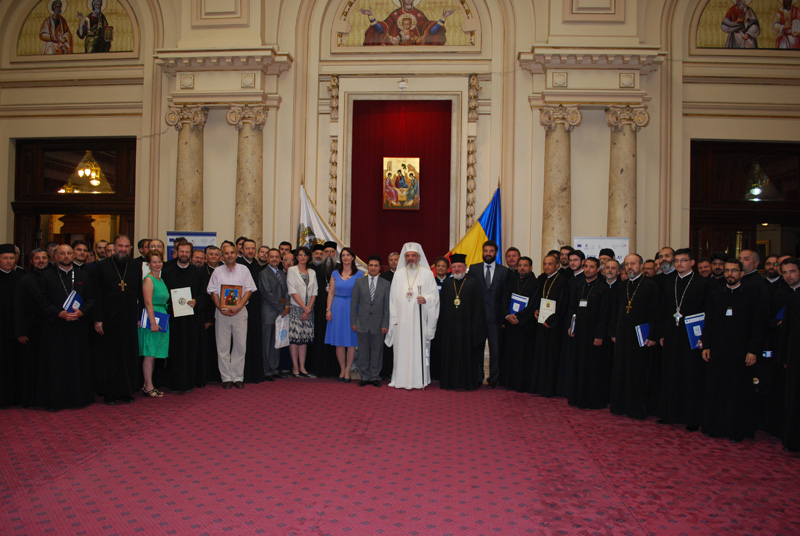Helping children “Choose School!” in Romania
The student drop-out rate in Romania schools is on the rise. According to the last and most comprehensive study on the topic, completed by UNICEF in 2009, more than 10 per cent of students leave school by the age of 14. Statistical evidence suggests that poverty is a big factor and that boys are more greatly affected than girls. Other groups that are disproportionately affected are the Roma children and children with special needs.
Seeing the worrisome trend, together with the European Union, World Vision partnered leaders from the Romanian Orthodox church and created the “Choose School!” project—a four-year initiative aimed at preventing and overcoming the phenomenon of early school dropout and juvenile delinquency. The program employed alternative education solutions, such Sunday School programs in order to ensure the basic moral education and motivation for studying–especially for children coming from the rural areas.
In order to contribute to a decrease of school abandoning, one must understand the causes children leave school. It is important to understand that many drop-outs come from disadvantaged communities that are characterized by isolation, poverty and lack of successful social or professional opportunities for graduates. Without any motivation, many pupils from the gymnasium classes often drop out of school from the first classes; they either work at their parents’ house or as day laborers for richer people inside their village. The poverty of disadvantaged communities also limits the possibilities of parents to offer their children the material resources necessary for education.
Through the “Choose School!” Project, World Vision Romania, in partnership with the Romanian Patriarchy, intervened in the education of children found at risk of abandoning school. Through the catechism lessons held inside the parish houses and the summer creation camps, where children learned about art, educators and religious leaders alike struggled to fill the hole left by the lack of parental affection and counteract the dramatic impact of the often negative family atmosphere that is a result of many different social and moral problems and allow children to discover talented they are and encourage them to be able to overcome difficult situations and to trust their future.
The Choose School program used a two pronged approach to try to curb early school dropouts; activities addressed to the trainers (training sessions) and activities addressed to the children (catechism lessons, creation camps and contests).
Over the course of the project, the Choose School project reached 29,207 children found at risk of abandoning school, becoming juvenile delinquents, people who had left school already, people who have not completed compulsory education, and preschoolers. None of this would have been possible without the support of 3,206 priests and religion teachers who participated in 247 training sessions and then implemented the training in at least 9,600 catechism lessons, 235 creation camps and numerous art contests.
“For each child, we have worked to discover and develop their special talents,” said Priest Constantin Naclad, the “Choose School!” project manager. “[The art contests worked to] to encourage attitudes and social competencies for children; to identify children with special artistic and literary aptitudes and to develop their interest in: literature and literary creations, plastic arts, drawing, photography, theology and communication.”
At the closure of the four-year project, Cătălin Andrew Popa, the national director of World Vision Romania said: “We are not here to celebrate a project or a success, but a determination to make a difference in the life of some children for whom, until recently, their potential future was not promising at all. Many of them have never been outside their village and school was of no importance.”
Noting the change in some of their attitudes over the course of the project, she continued, “[Today] a burning desire exists. They are willing to learn, but they need help.”
Although the Choose School project has come to a close, the effects are sure to be long-lasting as noted by Remus Pricopie, the Minister of Education. “These children will continue to catalyze reactions inside of their communities. They will continue to talk about school and the importance of school to their colleagues,” he said, proposing that a follow-up study be completed in three to five years to see the sustainability of the impact.



